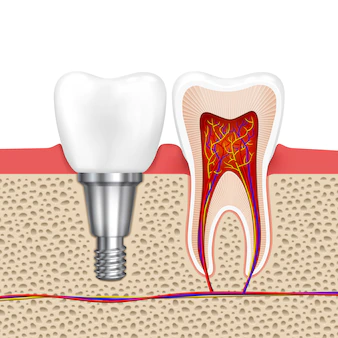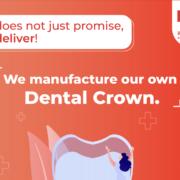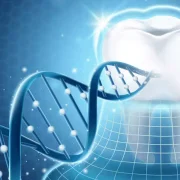Discover the fascinating world of tooth implant as Dr. Chirag Chamria, a renowned dental expert, takes us on an enthralling journey through time. In this captivating exploration, you will unravel the intriguing origins of tooth implants, a revolutionary dental procedure that has transformed countless lives. From ancient civilizations to modern advancements, Dr. Chamria delves into the rich history and evolution of tooth implants, shedding light on the remarkable ingenuity and perseverance of our ancestors. Prepare to be amazed as you learn about the ancient dental practices that laid the foundation for the sophisticated techniques used today. Join us on this extraordinary adventure, and embark on a voyage that will forever change the way you perceive dental implants.
History of Dental Prosthesis and Tooth Implant
Dental prosthetics have a long and fascinating history, with early civilizations displaying remarkable ingenuity in their attempts to replace missing teeth. The ancient Egyptians, for instance, used a variety of materials such as gold wire, seashells, and animal teeth to craft rudimentary tooth replacements. These early prosthetics were not as effective as modern dental implants, but they served as the foundation for the development of more sophisticated techniques. Ancient Rome pioneered dental prostheses by using human and animal teeth. Gold bands or wires stabilized and functionally replaced these teeth. The Romans pioneered tooth replacement using their excellent dental techniques.

During the Middle Ages, dental prosthetics took a backseat as the focus shifted to survival rather than aesthetics. However, as society progressed, so did the need for functional and aesthetically pleasing dental replacements. It was not until the 18th century that significant advancements were made in the field of dental prosthetics, leading to the birth of modern dental implants.
Early attempts at Tooth replacement
Several pioneers advanced tooth replacement procedures in the 18th century. Dr. John Hunter, an English surgeon, transplanted teeth. The body’s rejection of alien teeth hampered these early efforts, but they laid the groundwork for future advancements.
Another notable figure in the history of tooth replacement is Dr. Leonard Kollar, a Hungarian dentist who introduced the concept of using porcelain as a material for dental prosthetics. Porcelain teeth offered a more natural appearance and improved functionality compared to previous materials, setting the stage for the modern dental implants we have today.
Pioneers in Tooth Dental Implant
The 20th century witnessed significant advancements in tooth implant technology, thanks to the pioneering work of Dr. Per-Ingvar Brandmark. In the 1950s, Dr. Brandmark discovered the process of osseointegration, which refers to the direct bonding of bone to an implant surface. This groundbreaking discovery laid the foundation for modern dental implants and revolutionized the field of dentistry.
Dr. Brandmark’s research and development of titanium implants paved the way for the widespread use of dental implants in the decades that followed. Titanium implants have proven to be highly biocompatible, allowing for strong and stable integration with the surrounding bone. This breakthrough in tooth implant technology gave a long-term remedy for missing teeth that could tolerate daily living.

Modern Dental Implant Technology for Tooth
Today, dental implant technology has reached new heights with advancements in materials, techniques, and imaging technologies. Dental implants are now made from various materials, including titanium, zirconia, and ceramic, each offering its own unique advantages. These materials provide exceptional strength and durability, ensuring that dental implants can withstand the forces of chewing and biting.
Modern dental implants use cone-beam computed tomography (CBCT) and better materials. CBCT allows dentists to obtain detailed 3D images of the patient’s jawbone, enabling precise planning and placement of dental implants. This technology has greatly enhanced the accuracy and success rates of dental implant surgeries, resulting in better outcomes for patients.
Process of getting Dental Implant for Tooth
Getting dental implants is a multi-step process that requires careful planning and collaboration between the patient and the dental team. The journey begins with a comprehensive examination, including a review of the patient’s dental and medical history, as well as diagnostic imaging to assess the condition of the jawbone. This initial assessment allows the dentist to determine the feasibility of dental implant placement and develop a customized treatment plan.
The next step involves the surgical placement of the dental implants into the jawbone. This procedure is typically performed under local anesthesia, ensuring maximum patient comfort. The bone merges with the implant surface during osseointegration, providing a strong basis for the dental repair.
The dentist will manufacture and place a crown, bridge, or denture after osseointegration. This last step completes the dental implant operation, delivering a functional and appealing smile that may last a lifetime with proper care.
Advantages and Disadvantages of Tooth Dental Implant
| Advantages of Tooth Implants | Disadvantages of Tooth Implants |
| Improved Aesthetics: Dental implants closely resemble natural teeth, enhancing your smile and overall appearance. | Surgical Procedure: Some people may have infections or other issues after implant surgery. |
| Longevity: Implants are designed to be long-lasting, often lasting a lifetime with proper care. | Time-Consuming: The entire implant process, from placement to final restoration, can take several months, requiring patience. |
| Stability and Functionality: Implants are stable in the jawbone and enable you to chew, talk, and function comfortably. | Cost: Implants cost more than other tooth replacement choices, but they last longer. |
| Bone Preservation: Implants stimulate the jawbone, preventing bone loss that commonly occurs after tooth extraction. | Possible Failure: While rare, implant failure can occur due to factors like poor healing, infection, or implant rejection. |
| No Damage to Adjacent Teeth: Unlike dental bridges, implants don’t rely on neighboring teeth for support, preserving their integrity. | Invasive Surgery: Implant placement requires a surgical procedure, which may cause discomfort and necessitate a healing period. |
Dr. Chirag Chamria’s expertise | Tooth Dental Implant
Dr. Chirag Chamria is a highly respected dental expert with extensive experience in dental implantology. He is renowned for his exceptional skills and expertise in the field, and his commitment to providing personalized care to each of his patients. Dr. Chamria stays at the forefront of dental implant advancements, constantly updating his knowledge and skills to ensure the highest level of care for his patients.
As a leading dental implantologist, Dr. Chamria has transformed the lives of countless individuals by restoring their smiles and improving their overall oral health. His sensitivity and love for dental implantology make him a valued expert.
Success rates of Dental Implant | Tooth
Dental implants have proven to be highly successful, with reported success rates ranging from 95% to 98%. Dental implants’ success relies on the patient’s health, oral cleanliness, and the dentist’s skill. For dental implants to last, patients must practice proper oral hygiene and have frequent checkups.
With proper care, dental implants have the potential to last a lifetime. Regular brushing, flossing, and professional cleanings are crucial to maintaining oral health and preserving the longevity of dental implants. Additionally, avoiding habits such as smoking and excessive alcohol consumption can contribute to the success and longevity of dental implants.
In the finale of our odyssey, we reflect on the incredible narrative of tooth implants. From seashells and stones to titanium anchors, from ancient ingenuity to modern science, dental implants exemplify the relentless pursuit of healthier, happier smiles. Dr. Chirag Chamria’s insights have guided us through time, weaving together a story of innovation, resilience, and the power of transformation. So, dear readers, let us carry this newfound knowledge with us, honoring the past while embracing the future—a future where every smile shines with the brilliance of history.
© All rights reserved by Royal Dental Implants Pvt Ltd
Issued in public interest






